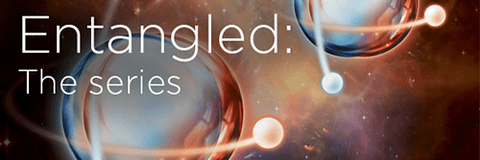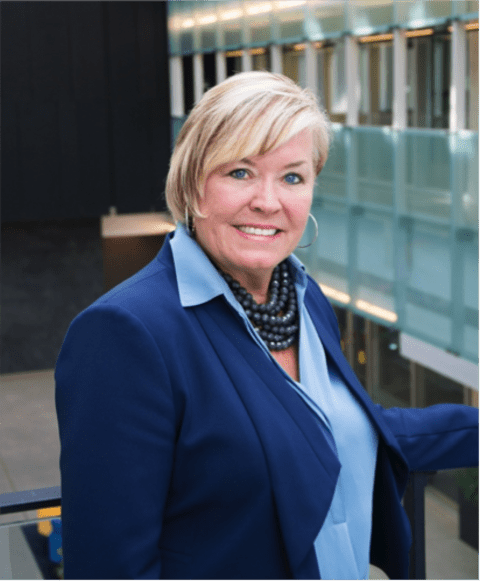Future graduate students
Quantum networks operating at telecommunication wavelengths
Nikolai Lauk, University of Calgary
Realization of a quantum network that enables ecient long-distance entanglement distribution would allow for multiple impressive applications with quantum key distribution being the most prominent one.
Entangled: The series – QUANTUM + logic
Quantum mechanics reveals that at its core, the world is not as it seems – it is far more interesting.
In the quantum world, outcomes are counter-intuitive, differing from what we expect based on our everyday experiences. The particle physicist Richard Feynman remarked that this means we seem to have to walk “a logical tightrope” when we talk about a quantum system.
Engineering magnetism and chiral edge state of quantum anomalous Hall system
Ke He, Tsinghua University
The quantum anomalous Hall (QAH) effect is a quantum Hall effect induced by spontaneous magnetization instead of an external magnetic field. The effect occurs in two-dimensional (2D) insulators with topologically nontrivial electronic band structure which is characterized by a non-zero Chern number. The experimental observation of the QAH effect in thin films of magnetically doped (Bi,Sb)2Te3 topological insulators (TIs) paves the way for practical applications of dissipationless quantum Hall edge states.
PhD Thesis Presentation
Candidate: Michael Mazurek
Title: Testing classical and quantum theory with single photons
RAC1 Journal Club/Seminar Series
Brandon Buonacorsi - Modeling the Exchange Interaction in Silicon Quantum Dots
Silicon metal-oxide-semiconductor field effect transistor (MOSFET) quantum dots are promising candidates for scalable quantum computing using electron spin qubits due to their long coherence times, compact size, and ease of integration into existing fabrication technologies. I will introduce how we fabricate these devices and describe the experimental characterizations we do to check the stability and tunability of our quantum dots. In a double quantum dot device, two qubit gates are realized
CryptoWorks21-SCC Standardization Workshop
CryptoWorks21 at the University of Waterloo, together with representatives from the Standards Council of Canada (SCC) and the European Telecommunications Standards Institute (ETSI), are proud to present a lunch-time standards session.
CryptoWorks21 Distinguished Lecture: Tools of Commercialization
“He who is good with a hammer thinks everything is a nail.”
- Modified quote from the original by Abraham Maslow
How does one sell security? How does one commercialize such nebulous concepts such as “Trust”, “Security” and “Cryptography”? Cryptography, which is just one building block of security, is based on other more abstract building blocks such as algorithms which have a foundation on hard mathematical problems.
RAC1 Journal Club/Seminar Series
Pan Zheng
Creating and Measuring Two-Mode Cat States
Quantum computing with the D-Wave processor
IQC/Physics Special Seminar - Loren Swenson, D-Wave Systems
I will introduce quantum annealing as a technique for harnessing quantum mechanics to solve hard problems. The design of a quantum annealing processor based on superconducting flux qubits, some of the challenges we have encountered in constructing it, and measurements confirming the role of quantum mechanics in such processors will be presented. Finally, I will briefly discuss recent benchmarking and simulation results using the D-Wave 2000Q processor.
- Previous page
- Currently on page 34 34
- Next page

